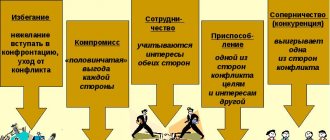Sometimes you need to quickly make an important decision: stay employed or build your own business. The article contains personal experience of how the right decision yielded incredible results!
On February 1, 2020, I joined the Academy of Experts. The first meeting within the Academy took place with Isaac Pintosevich. One of the participants, Stas Frenkel, asked: “What about the main work and the project? The main job is the main income.” I can’t reproduce Isaac’s words word for word, but the meaning was that it is important to understand what your true goal is and what you need to get in the end. I remember thinking then that I would never leave a job that paid me. Then the conversation turned to something else; many participants asked something and received answers.
How to make the big decision to work for yourself: a personal story
But this thought settled in me for a long time. She either went somewhere far away, then returned again with frantic force. I pushed this thought as far as possible. This is a permanent income! This is stability! No body movements. We sail and somewhere along the way, when I have time or when I want, I’ll do a little. But I want to, but I can’t, and I don’t have time. And there were countless such excuses. For the most part, it’s continuous self-digging, self-eating, up again, and down. A rollercoaster of resistances, fears and desires that are difficult to admit to yourself.
I had a vacation in September. And towards the end, I simply couldn’t shake the thought that in the company I was living according to an algorithm of actions. It even became difficult to breathe. What changed? Nothing in the company. It has changed in me. I needed wings.
I immediately remembered the parable about the master and his disciples. Once upon a time there lived a master and he had students. One day, the smartest one decided to test the teacher. I went to the meadow and caught a butterfly there. He placed it in his palms and closed them tightly. Then he came and asked the teacher, pointing to his palms: “Teacher, there is a butterfly. Is she alive or dead? At any moment the hands could close a little tighter, and the answer would become obvious. The student smiled, because the butterfly was clinging to its paws and he was tickled. The teacher just looked at the student, smiled kindly and replied: “Everything is only in your hands.”
As you guessed, we said goodbye to the company. The strangest feeling came to me - freedom. In decisions, actions, in life. New horizons were instantly projected. For several days I sincerely expected feelings of bitterness, regret, and confusion. But it didn’t arise. And this is just the beginning. I give, and it comes to me. This resourceful state is complete zen.
How to stop depending on other people's opinions or will you just end up being a cutlet?
Set goals and achieve them!
Free master class “ACT! DOUBLE! X2". Today only the book “Set Goals” as a gift!
Pick up a gift
How to make an important decision when in doubt?
Our lives are truly in our hands. Any turn in life is a chance, and only we ourselves can decide how to use it. Yes, the laws of nature, society, and people cannot be changed. And yet there is always a solution. It's closer than it seems.
It starts to rain - we take an umbrella, we don’t like the person’s behavior towards us - we either reconsider our attitude (what if we provoked it ourselves), or say goodbye.
It is worth constantly working on yourself, improving your skills and your efficiency. The learning process is continuous. Some are pushed by life, some are looking for knowledge and solutions, and some are complaining about fate, environment or circumstances. The main thing is to want and find the courage to take the first step, and then everything will work out!
How to make friends with fear read here: How to get rid of fear by making friends with it: conversation with a phobia and a body map
The ability to make the right decisions
We are taught to make decisions after the first year of life. Starting from simple natural ones, what to eat or what to wear, to complex ones, where to go to study, work or choose a life partner.
We use our own life experiences, as well as the opinions of others and various attitudes, and constantly reflect on the effectiveness of our previous and future choices.
The older people are, the more responsible they should be about the decisions they make, because this can actively affect personal relationships, financial status, as well as their position at work and in society.
For example, when you have your own business, you will have to develop your own skills to quickly resolve all emerging issues. So, we understand the importance of making the right choices, so the next question is: what is the best way to do this?
My results for October 2020
- I created and launched the PRO personal effectiveness course “Successful Mom”.
- I am one of the TOP 3 authors of the 5 spheres portal.
- 24 articles published.
- 93880 reads. And this is only on this resource!
- I started by writing a book on sales PRO “GIVE”. Still or already 26 pages and an insane amount of thoughts in my head
- The PRO “GIVE” course will soon be autonomous, and not tailored to the company’s needs.
- I practice not only online, but also offline. And even in your own city. Although before it seemed to me that no one needed it here. It turned out that many people needed it.
- Received a diploma as a business coach from Itzhak Pintosevich.
- Learned the basics of targeting.
- I took a public speaking course. Diploma on Wednesday.
And a bunch of manuals, checklists, transformation games, performance indicators and other daily leapfrogs. At the same time, maternity leave without grandmothers and nannies continues... And you still want to say that you cannot change your life?
Don't covet. Do it!
A video that will help you figure out how to make decisions easily.
From four sides
If you always find it difficult to choose, try a technique called the Cartesian square. Its essence is simple - you need to consider the problem from all sides.
For example, you were offered a job, but you don’t know what to do: leave or stay in your old place. Take a piece of paper and divide it into four parts. In each part, write one question and its answers:
- What will happen if this happens? (What benefits will you get by leaving for a new place.)
- What happens if this doesn't happen? (Advantages of the current job.)
- What won't happen if this happens? (What not to expect in a new place.)
- What won't happen if this doesn't happen? (What not to expect at your old job.)
Psychologists believe that we usually limit ourselves to the first question. But you need to evaluate the situation from four sides, count the number of pros and cons and make an informed choice.
Article on the topic
TEST: Are you capable of being a leader?
Time to consult!
Try to evaluate the circle of your acquaintances and choose people who will really help and give valuable advice about your decision. As a rule, there are such people in every person’s life. If you conducted a small sociological survey, consulted with several people, and they recommended you completely different things, take a closer look at which of them has achieved more success, especially in the area in which you need to make a decision.
If you still find it difficult to find a person who can give you good advice, turn to history or literature, which describes almost all life situations that concern a person. Especially relevant today are books by successful businessmen and entrepreneurs, which contain a lot of interesting and useful information just for you. Surely you can find something that will help you navigate and make the right decision.
Descartes square
Descartes Square is an extremely simple decision-making technique that requires very little time to use. With the help of Descartes Square, it is easy to establish the most significant selection criteria, as well as evaluate the consequences of any decision option.
If you look at the life of an ordinary person, you can see that when he finds himself in a situation where it is necessary to make decisions, he, as a rule, concentrates on one or two of its features, thereby driving himself into a kind of dead end, in which other significant ones are not noticed Criterias of choice. In addition, a person’s standard thinking contributes to the fact that he asks himself only one question: “What will happen if this happens?”, because the usual scenario of behavior involves performing an action and evaluating the feedback that follows. But in practice it has already been proven hundreds of times that, first of all, it is necessary to first think thoroughly and only then perform an action. And the Descartes Square is precisely designed to first think, but not just go through several options in your head, but write everything down on paper, following a certain technology.
An example is the following situation: you want to change your occupation (get a new job, start your own business, go freelance, etc.), but you just can’t get rid of doubts about this. You, of course, see all the advantages and benefits of a new type of activity, but you don’t know what it is to do something that you haven’t done before, and, accordingly, you hesitate in making a decision. So: using Descartes Square, you can look at the current situation from four different sides (we will continue to consider this example a little later).
How to make a decision and no longer doubt
So, what is considered the most important factor for good decision making? Of course, there is enough time to think, systematize factors, find the right course of action and choose one solution from several possible ones. To learn how to make decisions you will never regret, use the following tips.
Time and place
Don't act spontaneously in taking important steps. Schedule time when you can be alone.
If you wake up the next morning feeling relieved that you did the right thing, go for it! If not, then the solution is not correct, or not the only correct one.
Stress
Making a fateful decision is stressful for a person. You get the feeling that there is a wall in front of you, against which you have rested your forehead, and there is no further passage. Step away from the problem for a while. For example, go to the cinema to dispel negative thoughts. Distract your brain from the load that forces it to work under time pressure. But as soon as you feel that the feeling of heaviness in your soul has passed, return to the problem with renewed vigor.
Important and necessary
Think about the necessity of what you are doing now. Is this really of such value to you that it’s worth the effort and nerves? If you are on the right path, then doubts about the need to solve this problem should be dismissed. If not, then you must clearly decide for yourself what benefit is driving you.
Bottom line
Having made a preliminary decision, do not rush to act. Once again, evaluate the options for the development of events, compare them with previous experience, remember the mistakes of your friends, and only then proceed to implement the planned plan.
The moment you realize that your decision is the only possible and correct one, you will feel relief. Now everything has fallen into place. It’s easier for you, but you have to act strictly according to plan. Do not forget that the result you want to achieve depends on the accuracy of the sequence of actions.
Take a rest
So, if you have completed all or some of the previous steps, you are most likely tired as a result of your mind working hard, so put all thoughts aside and rest. Lie down, get distracted by other things, take a walk in the fresh air, and then return to the decision-making process with a new, “cleared” head. This time you will have a clear idea of what you need and what you don’t.
Do not forget that in such matters, intuition, premonition, a kind of “inner adviser” is also important. Listen to your inner voice, which usually knows what is right, but do not confuse intuition with emotions, which can lead you completely into the wrong steppe. And so that emotions do not become an obstacle to the implementation of your plans, we invite you to take our online program “Mental Self-Regulation”, where in 6 weeks you will learn to cope with fear, stress, procrastination and other negative mental states.
Another point when making decisions is the fear of making mistakes. Many people are afraid of failure, but this is completely in vain. Don't be afraid to make mistakes, because most of them can be corrected. Also, any mistake is an experience, and you need to be able to take your mistakes as an opportunity to learn something new, to become more experienced and wise.
By the way, the famous yogi and mystic Sadhguru speaks very interestingly about making the right decision in the video below:
As the guru points out, at the initial stages of decision-making, the most important thing is to realize that the outcome of the decision made will affect your personal state and the state of the people affected by it in an extremely positive way. This is the difficulty of making a decision, so be careful to keep this factor at the forefront.
In conclusion, I would like to note that we cannot avoid the decision-making process as we go through life. Every day we decide on some issue: from what to eat for breakfast, to how to motivate a child to go to school. Of course, the above techniques will be an excellent assistant on the path to implementing a solution, however, if you spend too much time focusing on finding the optimal solution, you can end up getting confused and losing the main thread - the goal that guides you. Remember it, and also remember the quote by Johann Wolfgang Goethe: “He who thinks for a long time does not always find the best solution.” Listen to yourself and don’t be afraid of mistakes, then everything will definitely work out!
We wish you success!
We also recommend reading:
- Storytelling
- Decision making system PrOACT
- Decision making under conditions of uncertainty
- Pros and Cons of Pros and Cons Lists
- RAPID Decision Framework
- Vroom, Yetton and Iago decision making model
- When to decide to act
- How to learn to make decisions
- Enemies of good decisions
- How to become more decisive and quicker in decision making
- The GROW Model for Coaching
Key words: 1Psychoregulation, 1Self-knowledge










